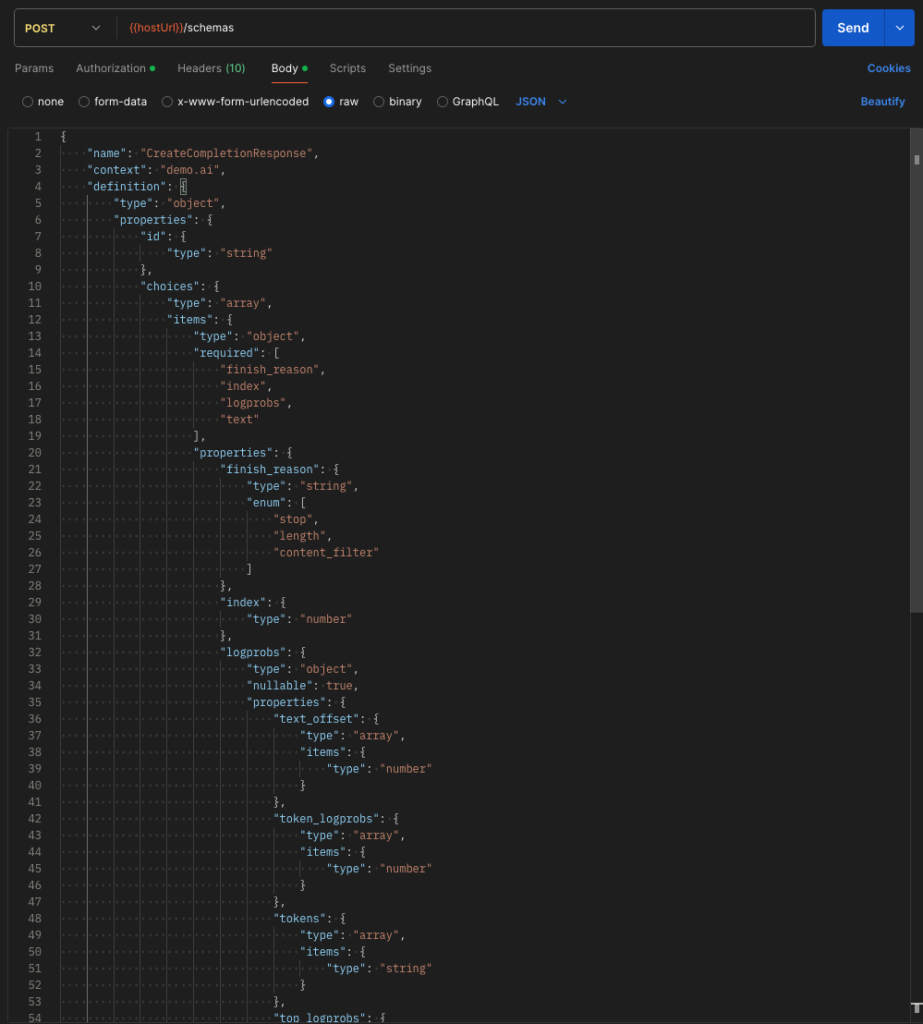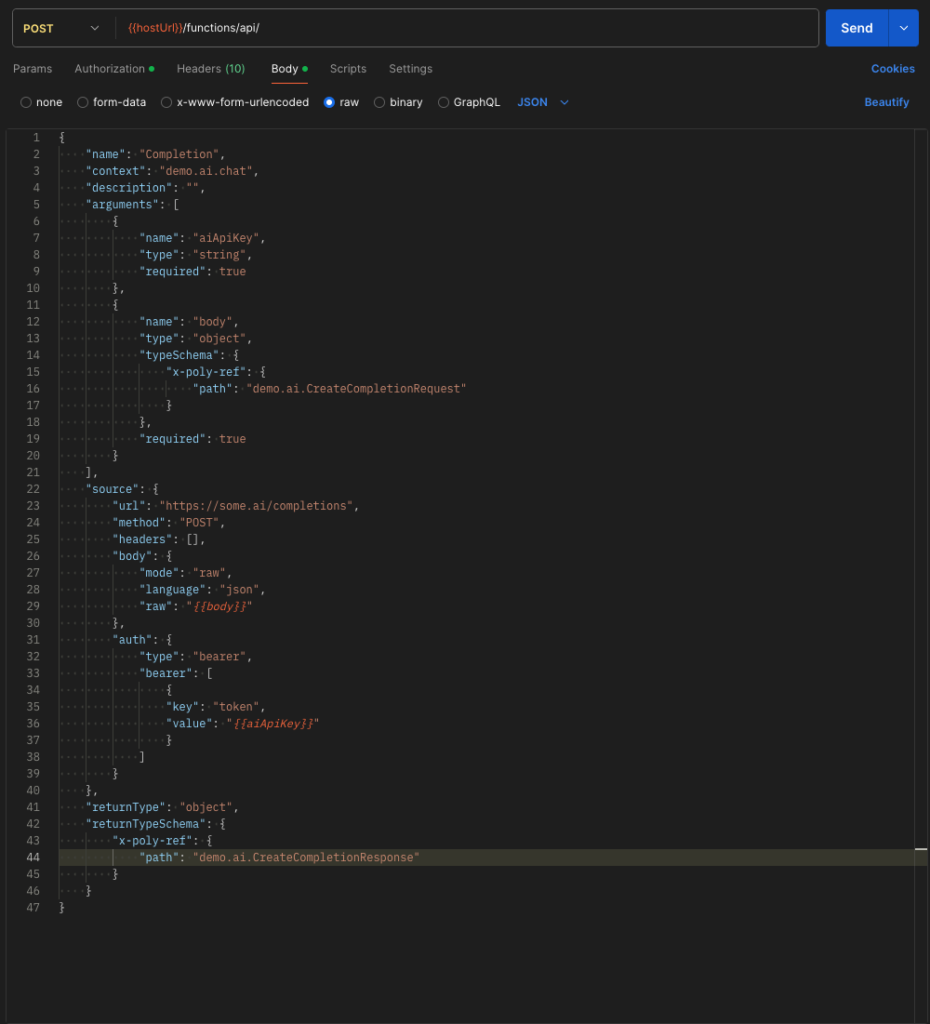PolyAPI introduces a groundbreaking feature in Release 16 to streamline and enhance schema management, focusing on reusability and cross-function application. By leveraging named JSON schemas, developers can now centralize and optimize their API structures, significantly improving project efficiency and consistency.
Key Features
- Named JSON Schemas
Developers can now create, list, update, and remove reusable named JSON schemas. These schemas are managed within the PolyAPI platform and can be referenced across multiple PolyAPI environments and even shared between tenants. This capability eliminates redundancy, ensuring that changes to a schema propagate across all dependent APIs and functions. - Seamless Integration with PolyAPI Functions
Named schemas can be directly linked to PolyAPI functions during training. This allows a single schema to serve multiple functions, avoiding the need to duplicate structure definitions. This promotes a modular approach to schema management, where individual components can be updated independently without disrupting dependent functionalities. - Enhanced OpenAPI Compatibility
When generating PolyAPI models from an OpenAPI schema usingnpx poly model generate, any named schemas within the OpenAPI definition are automatically extracted as separate reusable schema models. This means developers no longer need to manually parse or replicate schemas for different functions, as PolyAPI handles this process efficiently. - Reusable SDK Types
All trained schemas are included in the generated SDK types, ensuring developers can reference these schemas directly within their code. This integration allows for consistent type definitions across multiple projects, reducing development time and ensuring alignment between API specifications and application logic. - Cross-Environment Sharing
By enabling schema sharing across different PolyAPI environments or tenants, this feature supports collaborative development. Teams working on diverse components of a project can rely on unified schemas, streamlining cross-team workflows and minimizing errors caused by inconsistent definitions.
Benefits of Schema Reusability
- Consistency Across Projects: With named schemas, you ensure uniformity in data structure definitions, which is critical for maintaining reliable APIs across different applications.
- Time Efficiency: By reusing existing schemas, developers can avoid repetitive tasks, focusing instead on core application development.
- Improved Maintainability: Updates to a single schema are reflected wherever it is used, reducing the risk of outdated or conflicting definitions.
- Scalability: Centralized schema management supports large-scale projects, where multiple APIs and functions rely on shared data structures.
- Developer Collaboration: Sharing schemas across environments fosters a collaborative development ecosystem, especially in multi-team projects.
Application Example
When creating an API function, instead of redefining request and response schemas, developers can reference a named schema already defined and trained in PolyAPI. For example, a CreateCompletionResponse schema, once established, can be used for various functions, whether generating completions or logging responses. This reduces duplication and ensures consistency across all related API endpoints.
Streamlining Development with PolyAPI
PolyAPI’s schema management capabilities exemplify the platform’s commitment to modern, scalable, and efficient development workflows. By allowing reusable, shared, and modular schema models, PolyAPI equips developers with the tools needed to build robust and maintainable APIs in a fraction of the time.
This feature not only reduces development overhead but also sets a new standard for schema management in API design, making it an indispensable tool for teams aiming to build reliable, consistent, and scalable solutions.
Ready to see the power of reusable schemas in action? Schedule a personalized demo today and transform your API workflow!
Screenshots


